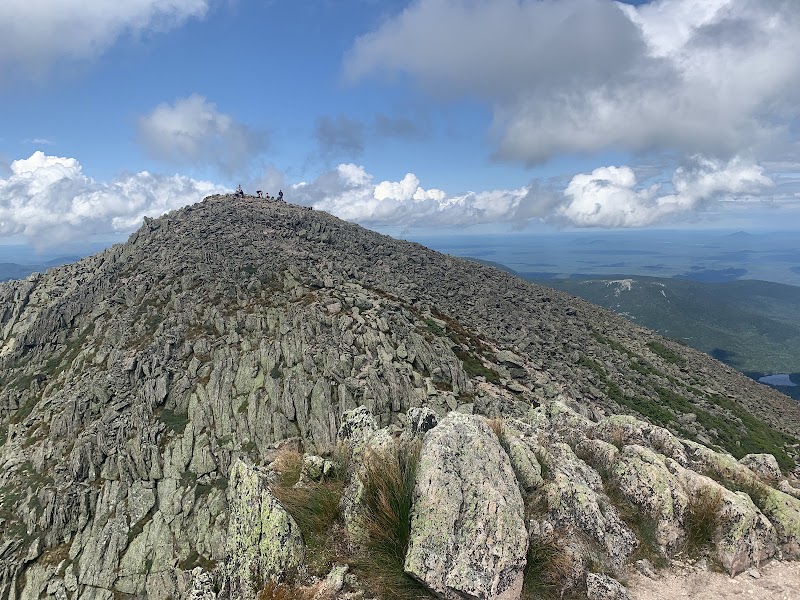
Portage Lake, Maine offers a gateway to dynamic snowmobile trails rich in varied terrain and natural challenge. From frozen lakes to forested hills, this region balances rugged adventure with practical trail access, making it a top pick for snowmobilers seeking both excitement and reliable infrastructure.
Check Weather and Trail Conditions Regularly
Snow and temperature changes can quickly alter trail safety. Use local reports and the Maine Snowmobile Association updates before heading out.
Layer Clothing for Variable Temperatures
Prepare for cold mornings and warming afternoons by layering moisture-wicking and waterproof fabrics to regulate your temperature on the trail.
Carry Extra Fuel and Tools
With loops extending beyond 30 miles, bring additional fuel and basic repair tools to avoid getting stranded in remote sections.
Respect Wildlife and Trail Etiquette
Keep distance from wildlife and stay on marked trails to preserve the environment and ensure safety for all riders.
Navigating Maine Snowmobile Association Regional Rides in Portage Lake, Maine
Portage Lake, Maine stands as a key gateway to the Maine Snowmobile Association’s regional rides, offering access to some of the state’s most thrilling winter trails. This area challenges riders with its varied terrain—rolling hills, dense forests, and frozen lakes—all demanding respect and preparedness. At roughly 20 miles from the regional trailheads, Portage Lake serves as more than just a starting point; it’s a place where the environment actively engages you, whether it’s the crunch of fresh snow under your sled or the biting breeze cutting across open sections.
Trail distances vary from manageable 15-mile loops to extended 40-mile ventures that require careful fuel and gear planning. Riders encounter elevation changes up to 500 feet, with several steep ascents pushing your endurance, especially in sections where the forest narrows and the trail tightens. Trees lean close, seeming to watch, while creeks and rivers dare you to maintain speed without faltering. Preparation is essential: fueling up both machine and rider before heading out, layering clothing to guard against sudden temperature drops, and assessing weather to avoid whiteout conditions.
The trails themselves waver between hard-packed snow on flatter stretches and softer, sometimes icy patches that test your steering precision and throttle control. The forest responds dynamically, often revealing icy windfalls or frozen ponds that lure riders with smooth surfaces but require caution. Along the route, you’ll find pit stops at local lodges and cabins—vital for breaks and warming up—signaling a brief truce with the landscape before plunging back into the wilderness.
Timing your trip matters: mornings gift crisp, clear conditions with golden light filtering through spruce boughs, while afternoons bring shifting winds and a fading horizon. Portage Lake's surroundings also reward those attentive to wildlife—mink and snowshoe hare dart from cover, while eagles perch nobly above, their sharp eyes tracking the trail’s rhythm. To make the most of this adventure, riders should carry reserve fuel, layered waterproof clothing, GPS devices, and maintain a strict check on tire studs or tracks.
In sum, the Maine Snowmobile Association regional rides around Portage Lake are a true engagement with a winter wilderness that is fiercely itself—both inviting and demanding. Whether you’re a seasoned rider aiming to push limits or a casual adventurer soaking in the silent energy of the forest, this network offers a practical yet exhilarating way to experience Maine’s snow-covered backcountry.
Nearby Trips
All Adventures
Boat Charters
Water Activities
Adventures near Portage Lake, Maine
Discover the unique and memorable adventures that make Portage Lake, Maine special.
Frequently Asked Questions
Are the Maine Snowmobile Association trails around Portage Lake maintained regularly?
Yes, the trails are groomed frequently throughout the winter season by the Maine Snowmobile Association, ensuring smooth and safe paths for riders. However, conditions can still vary rapidly with weather changes.
What wildlife might I see during the ride?
Riders commonly spot snowshoe hares, mink, and occasional bald eagles. These animals are alert and can disappear swiftly, so observe quietly and maintain distance.
Is it necessary to have a snowmobile license to ride these trails?
While a state snowmobile registration is required, no special license is needed. Riders must adhere to Maine’s snowmobiling laws and safety regulations.
Are there any local emergency services accessible from Portage Lake trails?
Emergency response in this region is available but can be delayed by weather. It’s critical to carry communication devices and inform someone of your route and expected return.
Can beginners safely enjoy the Portage Lake regional rides?
Beginners can access shorter loops designed for lower speeds and less challenging terrain, but a cautious approach and possibly guided rides are recommended until skills improve.
What environmental practices should riders follow here?
Stay on designated trails to protect vegetation and minimize erosion. Follow 'Leave No Trace' principles by packing out all trash and minimizing noise disturbance.
Recommended Gear
Layered Thermal Clothing
Crucial for managing body temperature during long hours in cold, windy conditions.
Full-Face Helmet with Temperature Control
Protects from cold wind and improves visibility while offering safety on challenging terrain.
Portable Fuel Container
Ensures that you can refuel your snowmobile on extended rides away from service points.
GPS or Trail Map
Navigational aid to avoid getting lost and to track completing loops efficiently.
Local Insights
Hidden Gems
- "A small overlook near Trail 12 offers sweeping views of the frozen Portage Lake, a quiet spot away from the busier sections."
- "The old logging routes interwoven with the main trails reveal historical aspects of the land's use."
Wildlife
- "Beyond common mammals, trackers may glimpse the occasional fisher or lynx during the quieter dawn or dusk hours."
History
"Many trails follow paths originally used for logging in the 19th and early 20th centuries, connecting riders with Maine’s forestry legacy."
